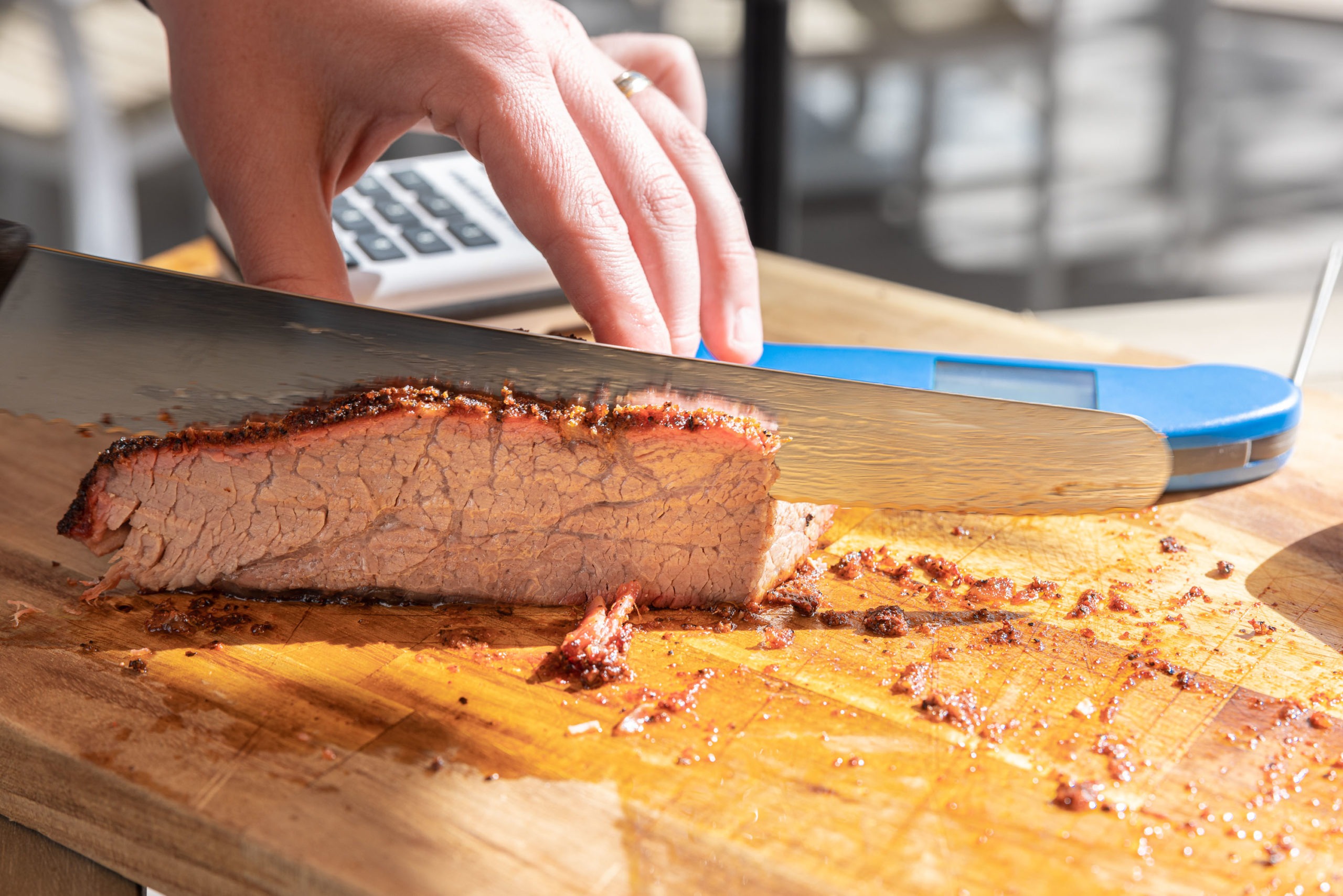Brisket Marinade: Tips for Flavorful and Tender Meat
A well-crafted brisket marinade enhances both the flavor and texture of the meat. By soaking the brisket in a combination of spices, herbs, and liquids, the marinade penetrates the meat, infusing it with deeper flavors. Marinated brisket often features robust tastes, such as garlic, cumin, and mustard, which otherwise might not permeate the meat.
Marinades boost tenderness as the acidic components, like vinegar or citrus juice, help break down tough muscle fibers. This results in a softer, more succulent texture that is more enjoyable to eat. For a compelling flavor profile and a tender bite, marinate your brisket adequately before cooking.
The Science of Marinade on Meat
The interaction between the marinade and the meat involves both physical and chemical processes. Enzymes and acids in the marinade alter the meat’s protein structure. For example, enzymes from ingredients like pineapple or papaya break down proteins, contributing to the meat’s tenderness. These reactions make the meat easier to chew and enhance its ability to retain moisture.
Salt in marinades also plays a crucial role. By osmosis, salt draws moisture into the meat, locking in juiciness and imparting seasoning throughout the brisket. For a scientifically-proven approach to better-tasting, moist, and tender brisket, use marinades thoughtfully.
Popular Ingredients in Brisket Marinade
Traditional Ingredients
Classic brisket marinades often contain several fundamental ingredients. These elements infuse the meat with essential flavors and aid in the tenderizing process.
- Garlic: Provides a robust, savory flavor.
- Onions: Impart sweetness and depth to the marinade.
- Vinegar: Acts as an acidic tenderizer. Common types include apple cider vinegar and white vinegar.
- Citrus Juice: Contributes acidity and brightness. Lemon, lime, and orange juices are popular choices.
- Soy Sauce: Adds umami and saltiness.
- Brown Sugar: Introduces a touch of sweetness and helps with caramelization during cooking.
- Olive Oil: Functions as a fat component, helping distribute flavors and maintain moisture.
- Salt: Essential for enhancing the overall flavor and drawing moisture into the meat.
- Black Pepper: Provides a subtle heat and complexity.
Modern Twists and Additions
Modern twists on brisket marinades incorporate unconventional yet flavorful components. These new elements enhance the traditional flavors and offer unique dining experiences.
- Worcestershire Sauce: Adds a tangy, umami-rich flavor.
- Mustard: Provides a sharp, tangy taste. Both Dijon and yellow mustard are used.
- Red Wine: Introduces depth and richness while acting as an acid tenderizer.
- Hot Sauce: Contributes heat and complexity. Varieties with vinegar bases add an extra layer of acidity.
- Honey: Brings additional sweetness and aids in caramelization.
- Herbs: Fresh herbs like thyme, rosemary, and parsley offer aromatic depth.
- Chili Powder: Introduces a smoky heat and compliments the earthy flavors.
- Beer: Beer marinades lend unique malt flavors and help tenderize with their acidic content.
Using a combination of traditional and modern ingredients can create a distinctive and complex marinade, enhancing the overall flavor profile and tenderness of your brisket.
Creating the Perfect Marinade
Balancing Flavors
Balancing flavors in a brisket marinade involves combining salty, sweet, sour, and umami elements. Salt, found in soy sauce or kosher salt, enhances other flavors. Sweetness from honey, brown sugar, or molasses provides depth. Sour elements like vinegar or citrus juice add brightness. Umami, present in ingredients like Worcestershire sauce or soy sauce, delivers a savory note. Combine these elements thoughtfully to create a complex and harmonious profile.
Ingredient Proportions
Ingredient proportions are crucial for an effective marinade. Use a 3:1 ratio of oil to acid; for example, combine 3 cups of olive oil with 1 cup of vinegar. Adjust salt and sugar to taste but start with 1 tablespoon of salt and 1 tablespoon of brown sugar per cup of liquid. Aromatics like garlic and onions should balance well with herbs and spices; use 4-6 cloves of garlic and a medium onion for a typical batch. Maintain consistent proportions for a balanced marinade that complements your brisket.
Tips for Marinating Brisket
Marinating Time Frames
Optimal marinating times ensure the brisket absorbs flavors adequately. For best results, marinate for at least 12 hours if using an acidic marinade. This duration allows enzymes to tenderize the meat effectively. Aim for up to 24 hours for a more intense flavor profile, but avoid exceeding this time to prevent the meat from becoming mushy.
Techniques for Even Marination
Ensuring even marination is crucial for consistent flavor throughout the brisket. Place the brisket in a resealable plastic bag or a non-reactive container to achieve an even coating. Rotate the meat periodically, approximately every 4-6 hours, to redistribute the marinade evenly. Puncture the brisket with a fork before marinating to help the marinade penetrate deeper, resulting in a more flavorful and tender outcome.
Conclusion
Mastering the art of brisket marinade can elevate your barbecue game to new heights. By understanding the science behind tenderizing and flavor infusion, you can create a mouthwatering dish that impresses every time. Remember to give your brisket enough time to soak up the marinade and use techniques like rotating and puncturing the meat for the best results. With these tips and a little patience, you’ll be well on your way to serving a perfectly marinated brisket that’s sure to be a crowd-pleaser.






